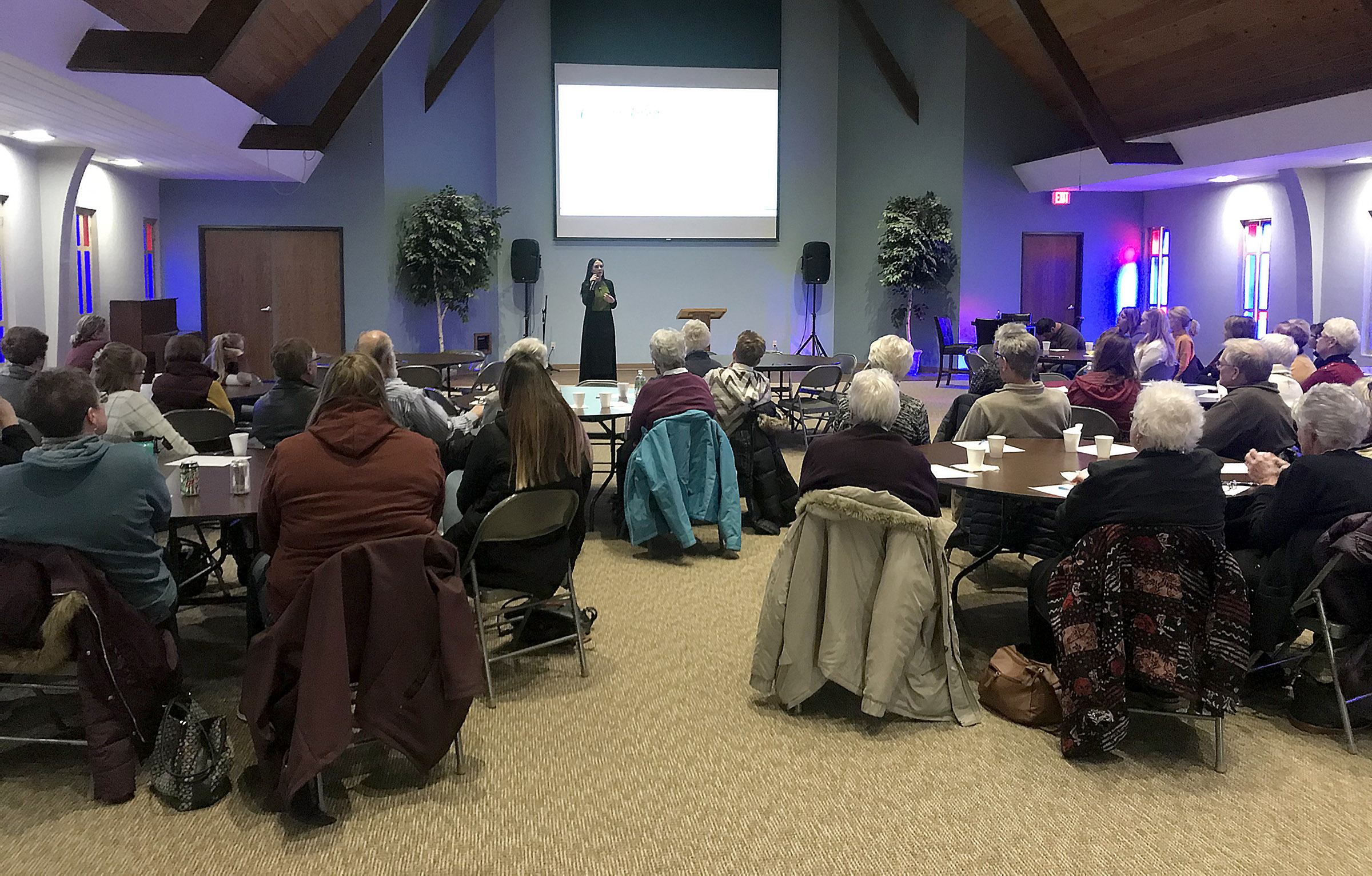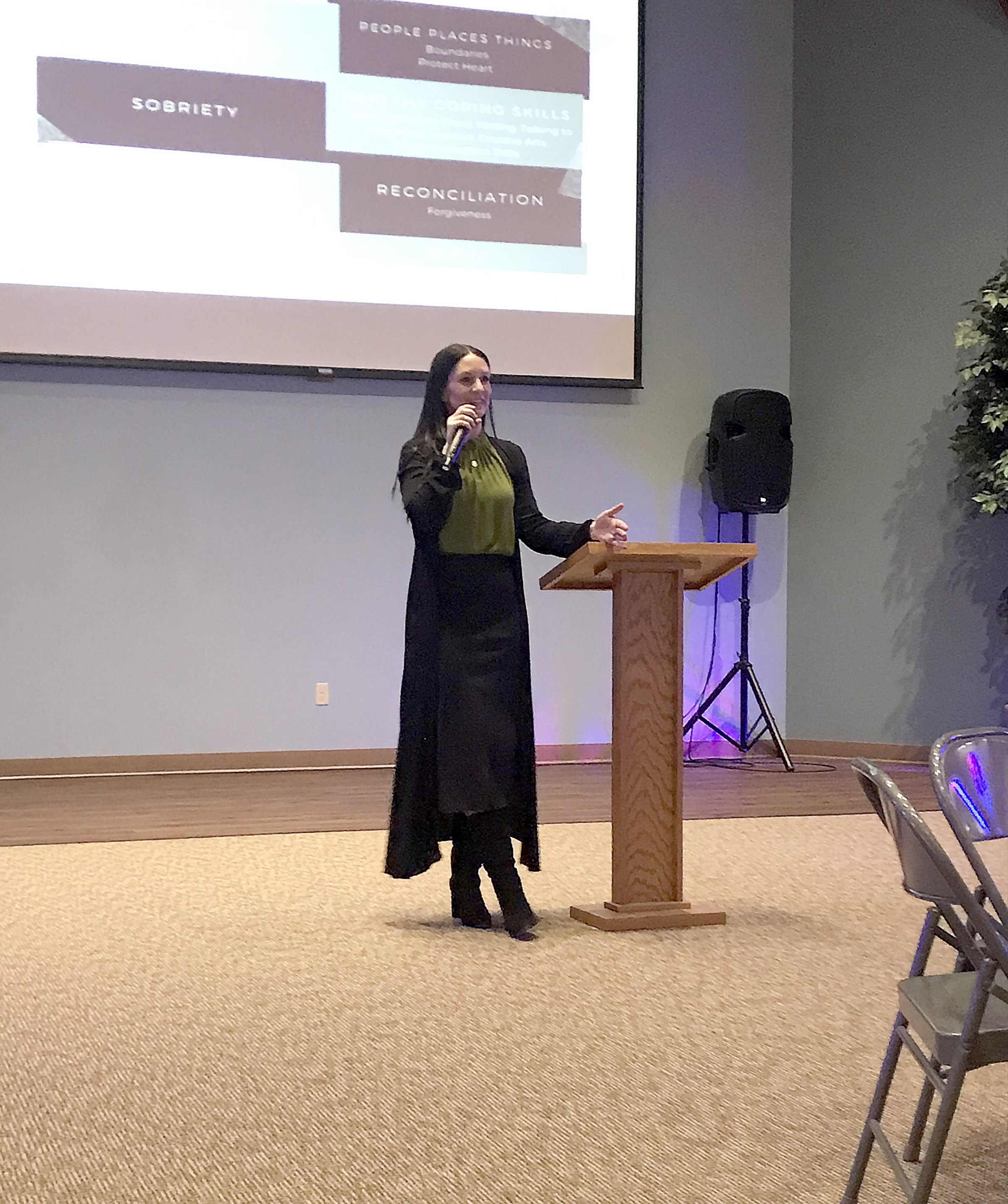 ,
, 
A common misconception about human trafficking is that victims are suddenly abducted and locked away to be exploited for cash.
At Sunday afternoon’s human trafficking awareness event in Luverne dozens of people learned how exploitation starts, what makes young people more vulnerable and how to help prevent it.
Allan Bakke, a navigator with the Southwest Crisis Center shared statistics about the multi-billion global industry of human trafficking, which includes sex trafficking and labor trafficking.
He described it as modern day slavery that represents the second largest criminal enterprise in the world, second only to weapons sales, generating $150 billion per year.
In Minnesota, an estimated 8,000 people are involved in trafficking every day (including victims, traffickers and purchasers) and the average age young people are lured to trafficking is 12 to 14 years old.
Bakke said a common misconception is that trafficking happens only in bigger cities, but that’s not the case. “It happens everywhere,” he said. “Even in small towns.”
He said human trafficking has shown up in all 50 states and in all 87 counties of Minnesota, including Rock County where he’s dealt with five cases.
“Of those in Minnesota, 90 percent of the trafficked youth are from Minnesota,” Bakke said. “What are we going to do about this?”
Part of Sunday’s presentation at the American Reformed Church was testimony of Danielle Freitag, a Minnesota woman who was trafficked in her youth. (See the related story)
A primary focus of Sunday’s event was to increase community awareness and involvement.
“We need to roll up our sleeves and walk among the people — like Jesus did, not judgmentally, and ask how we can help.”
He said its important for communities to dispel myths about trafficking — that “bad guys” in white vans are driving around trying lure children with candy.
And he said it’s not prostitution.
“It’s not a living choice, but rather it’s something they’re coerced into doing in exchange for food, shelter or security,” Bakke said, pointing out that the traffickers prey on vulnerabilities.
“If it’s 20-below in January and I’m homeless in the streets and I get told that in exchange for sex I can come in out of the cold … Thank God I’ve never been in that position to be pushed over the line to do that.”
‘This really is a man’s issue’
But other vulnerabilities can be as simple as a young person’s insecurities and falling for the affections of an older man with ulterior motives.
The single most important thing communities can do to protect their youth is to share awareness of the danger.
“Not everyone can do everything, but everyone can do something,” Bakke said. “We all have unique gifts to offer.”
Churches and civic groups can host informational events like the one Sunday, and he particularly encouraged the “We are all Connected” curriculum through the “Men as Peacemakers” organization.
He said the idea is to challenge cultural norms — like bachelor parties at strip club — that reinforce attitudes that marginalize and commoditize women.
“This really is a man’s issue,” Bakke said. “Of those purchasing sex, 99 percent are men. … So, it makes sense to look at men’s behaviors and attitudes.”
‘Not just a number’
Schools are already on the front lines of building awareness among youth, thanks to curriculum offered through the Southwest Crisis Center.
The five-week program called “Not a #Number” is offered through “Love146,” and teaches young people how to protect themselves from human trafficking and exploitation.
Jen Lindsey is the Rock County advocate for the Southwest Crisis Center and has introduced the information to area students.
“We talk to them about their vulnerabilities and how to develop resiliency so that it’s not as easy for someone to exploit them,” Lindsey said.
“Everyone has vulnerabilities, even adults, but as adults, if something sounds too good to be true, we tend to know better. Youth don’t have that background.”
She said if teens are aware of their vulnerabilities, they’re better equipped to make the right choices in situations where they might be in danger.
Lindsey said another important tool for young people is the Crisis Center’s Teen Text Line, 218-666-8336, which provides support for struggling teens.
Lindsey can be reached at 507-283-9917 and Bakke can be reached at 507-376-4311.


